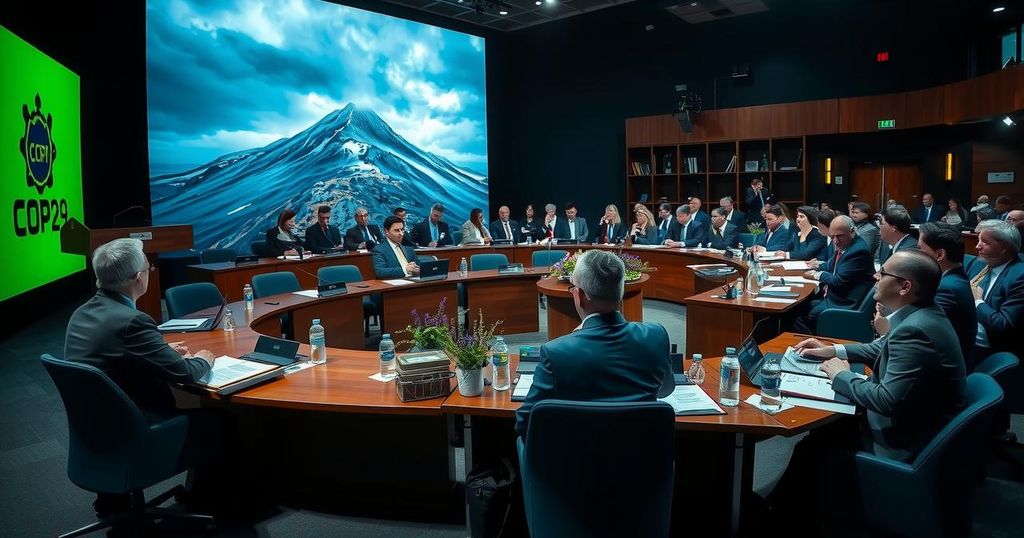The Baku Backlash: Navigating Climate Finance Post-COP29
COP29 revealed a significant setback in climate financing, echoing the disillusionment experienced by Ecuador under Rafael Correa. As Colombia seeks to transition away from fossil fuels, Brazil aims for a continued dialogue on climate finance, offering a glimmer of hope. With impending elections in key economies, global support for climate initiatives remains crucial to counter fossil fuel interests and enhance funding mechanisms.
The recent outcomes from COP29 in Baku presented significant challenges, particularly regarding the lack of financing for climate initiatives. Notably, the former Ecuadorian president, Rafael Correa, exemplified the struggle for ecological integrity by attempting to leave the oil reserves in Yasuni untouched in exchange for international funding, ultimately leading to disillusionment due to insufficient support. As Ecuador wrestles with economic dependency on oil, Colombia now faces a similar predicament, with President Gustavo Petro advocating for a transition away from fossil fuels.
Brazil’s negotiators strove to secure a continued dialogue on climate finance, proposing a roadmap for future funding to assist developing nations. The hope remains that with the upcoming elections and shifts in leadership in key countries such as Japan, Germany, and the UK, there could be renewed commitment to financial support for climate action.
Despite the daunting political landscape, there exists a sliver of optimism regarding funding for climate initiatives. The forthcoming climate summit in Belém may serve as a pivotal moment for collaborative efforts in securing necessary financial backing for environmental endeavors, urging collective action against fossil fuel reliance.
This article discusses the aftermath of COP29, emphasizing the urgent need for climate financing and the challenges faced by countries like Ecuador and Colombia. The historical context provided by Rafael Correa’s initiatives highlights the complexities in securing international agreements for ecological preservation. As climate negotiations continue, financial uncertainty looms large, complicating efforts for transition towards sustainable energy. The looming elections and international developments in major economies may influence the financial landscape for future climate initiatives, stressing the time-sensitive nature of these discussions.
In summary, the outcomes of COP29 reflect a critical juncture in climate negotiations, marked by disappointment over funding shortfalls. The efforts of leaders like Petro in Colombia and the negotiations led by Brazil suggest a continued dialogue on climate finance is essential. As nations prepare for upcoming elections and shifts in leadership, the global commitment to tackling climate change depends on unified efforts to secure essential funding. The journey from Baku to Belém may still bear fruit, but proactive approaches are imperative to combat the overwhelming influence of fossil fuel interests.
Original Source: www.independent.co.uk




Post Comment